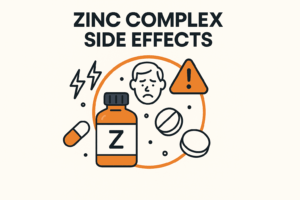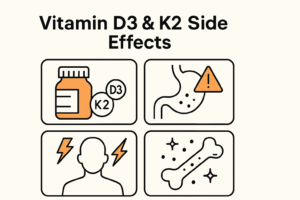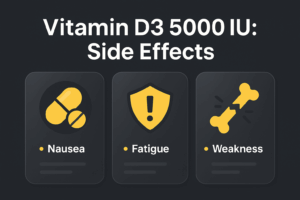While your clinic or practice might be your pride and joy, what if we told you that you could build patient trust, increase revenue, and boost your brand’s reputation even further than before? Integrating private label supplements into your clinical offerings could be just the venture you’re looking for.
Back in 2019, private label multivitamin sales alone in the U.S. totaled around 321 million U.S. dollars. [1] And with the growth of personalized healthcare and health consciousness becoming more prominent in the generations to come, there are countless opportunities to explore within the realm of private label supplements.
As a clinic owner or physician, you might have questions about pricing, logistics, the different types of supplements, and finding a private label supplement manufacturer. This comprehensive FAQ guide will help you get started.
What’s the difference between private label vs. white label supplements?
You might have seen the terms ‘private label’ and ‘white label’ used interchangeably, but there are some nuances that differentiate them. Private labeling refers to products that are manufactured by a third party but sold under your brand name. These products are sold only to your brand and for your brand, giving you a level of exclusivity. These pre-formulated products are manufactured in bulk and branded, packaged, and designed under your brand identity.
White label supplements are products that are manufactured and sold by a manufacturer to multiple sellers. They’re a standardized product that can be rebranded by any company looking to sell them. It’s more of a one-size-fits-all solution that is less involved and has less differentiation.
What are the different types of private label supplements?
There are a wide variety of private label vitamins and supplements that could suit your specific audience, including herbal supplements, powders, weight loss supplements, organic supplements, and other targeted supplements. Each category has a unique positioning and purpose for different health goals.
For example, if your patients are drawn to more natural products, herbal supplements could be a good fit. Protein powders and superfood blends could be favored due to their ease of use and versatility. And targeted supplements like prenatal vitamins let you tailor your supplement offerings to a specific group of patients.
What is the cost of private label supplements?
The cost of starting your own private label supplement line greatly depends on a variety of factors. This might include the type of supplement, the complexity of the formula, how many units you choose to order, your packaging choice, and what the specific manufacturer charges for their services.
As an example, if you’re creating a complex, custom-formulated, and manufactured supplement, you’ll likely see higher prices. The more custom, personalized, and premium the product is, the more expensive it will be. In contrast, basic supplements that don’t have any specific instructions to follow during manufacturing will be a lot more cost-effective.
How do you find the right private label supplement manufacturer?
If you decide to venture into the world of private label supplements, you’ll need to find the right private label supplement manufacturer. The manufacturer you choose can have a profound impact on your product’s quality, price point, and overall success.
As a non-negotiable, you’ll need to make sure the manufacturer adheres to Good Manufacturing Practices (GMP) and complies with necessary regulations from the FDA and other authorities. You might want to request to see their certifications before making the jump.
Other than regulatory standards, manufacturers with experience and expertise in the supplement industry will likely be a better fit as they’ll understand the ins and outs of formulation, sourcing, and production. These manufacturers are often more consistent and receptive to constant communication and may even offer you valuable insights to better your product.
Some manufacturers are also more flexible when it comes to customizing the physical product, as well as the services they offer. They might be more willing to provide branding guidance or unique formulation options. But, of course, with these factors comes the question of cost-effectiveness. Are the manufacturer’s services reasonably priced, or are they much too high for your budget? It also might be tempting to go with a very cheap manufacturer, but note that you might receive a subpar product that you won’t want to market to your patients.
What is the process of private label supplement manufacturing?
The process of private label supplement manufacturing starts well before you choose a manufacturing partner. It all starts with identifying your target market. What kind of patients do you serve? What would they be looking for in a product? Do they have any specialized health concerns?
Once you have a deep understanding of who you’re selling these products to, the next step involves choosing the type of supplement you want to sell. This means considering the form as well as the formulation. Do you want to sell a tincture, powder, chewable tablet, or a drink? Are you creating a probiotic, a multivitamin, a targeted supplement, or even an organic one?
Depending on the manufacturer you choose and how they operate, customizing your formula could be as simple as picking a pre-made formula or more complicated if you get to formulate the product yourself. Next, you’ll design your product’s packaging and labels, making sure they carry your branding, including your logo, name, brand colors, and more. While aesthetics are important, there are also mandatory labeling standards like displaying ingredient lists, following FDA language requirements, and more.
Before the product is set for mass production, it will go through a series of quality testing bouts, making sure the product is safe and consistent. If the product is given the green light, mass production begins.
When you’ve received your line of products, you can start distributing and marketing. You might consider omni-channel marketing and distribution and potentially launch promotional campaigns to get the ball rolling. Although you’ll want to engage customers at your clinic, you can also use e-commerce, social media, and other marketplaces to sell your products.




